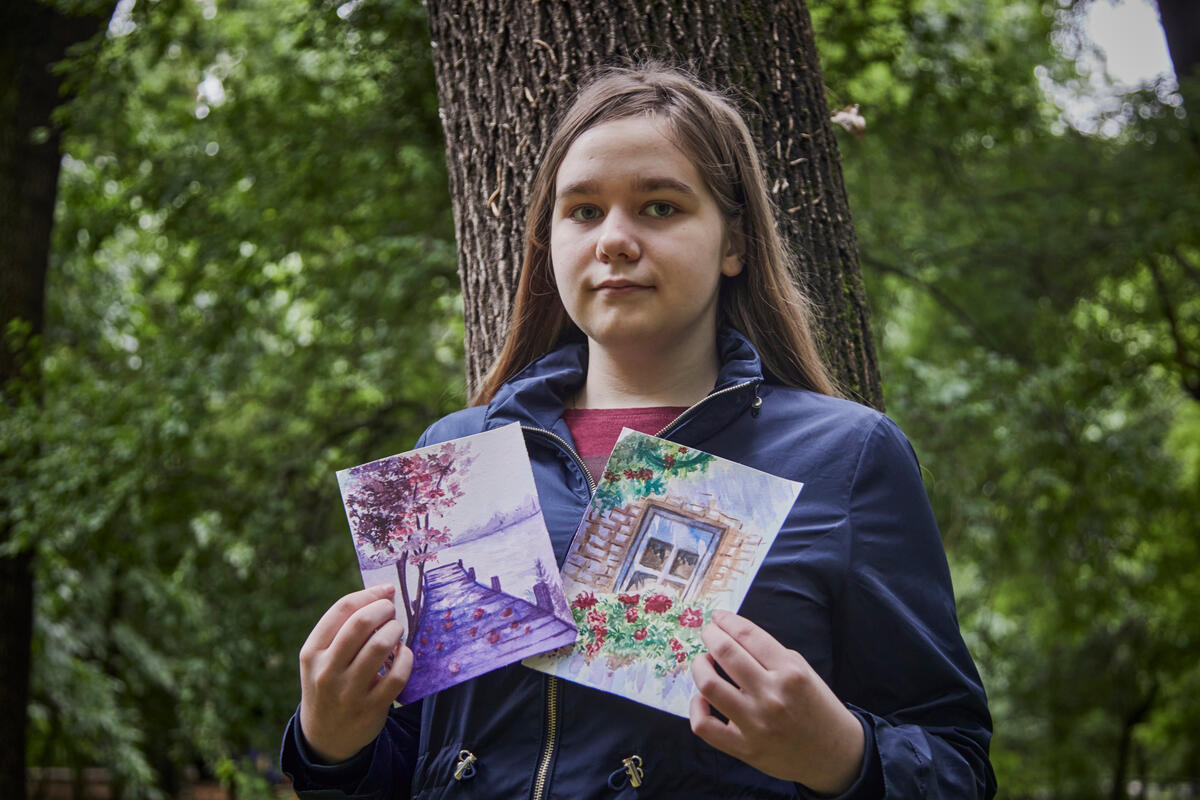Kenyan refugee camp hosts first refugee youth film festival in East Africa
Kenyan refugee camp hosts first refugee youth film festival in East Africa

KAKUMA, Kenya, December 7 (UNHCR) - It's got a long way to catch up with Cannes, Venice or Sundance, but a recent film festival in north-west Kenya proved a great hit with dozens of refugees.
There were no stretch limousines bringing pampered stars to premieres, no packed photocalls or starlets in revealing outfits. Instead, more than 100 people made their way by foot or pedicab to the makeshift tin-roofed cinema hall at the first Kakuma Youth Film Festival late last month.
Black cloth blocked out the bright sunshine blazing down on the dusty refugee camp, while the largely youthful audiences sat on wooden benches. It did not detract from their enjoyment of the action unrolling on the big screen - after all, you don't need an air-conditioned auditorium to enjoy the movies.
The day-long festival, which organisers FilmAid International and Cinereach hope will become an annual event, featured a programme of 20 short films made by young refugees. "This is the first time this film festival is being held at a refugee camp in East Africa," said FilmAid's Charles Otieno, whose organisation is a UNHCR implementing partner in Kakuma.
The idea for the festival came from young refugees in the camp - home to some 90,000 refugees from about 10 African countries. They wanted to record their stories on camera and share them with members of their communities.
Otieno said their interest had been sparked by participation in a video project club, which helped build up their confidence and self esteem while allowing them to express themselves. The club, launched in 2002, teaches young refugees basic camera and editing skills and encourages them to tell their stories through video. Some 350 young people have taken part in its courses.
"We are all from different countries, talk different languages, and we have all experienced different wars. But through film we all become one and we are all able to express our ideas, our feelings and our ambitions", said 20-year-old Idi Nuru, a member of the club. "That is why the film festival was important to us, because we were able to show our work to others," he added.
All the films shown at the inaugural Kakuma Youth Festival were written, directed, shot and edited by members of the club. Acted by other camp residents, they included love stories, a cautionary tale about HIV/AIDS, a look at voluntary repatriation and a feature about polygamy and child abuse.
Just like the major film festivals, prizes were awarded in several categories. The best picture and best screenplay winners received certificates from United States-based FilmAid International, which has also promised textbooks on a subject of their choice to each member of the winning productions. The best male and female actors, best director and best cinematographer got certificates, cameras and film.
The skills learnt at the video club could also prove useful once the refugees finally get back to their ravaged homelands. Some 80 percent of the camp residents are from southern Sudan, which has welcomed back tens of thousands of refugees since the signing of a peace agreement in January last year between the Sudanese government and the rebel Sudan People's Liberation Movement/Army.
Southern Sudan will need people with special skills to help the region recover from years of conflict. Alumni of the video club here will have a head's start. "I want to become a journalist when I return to my home in south Sudan.," said 21-year-old Aliandro Lotok, adding: "The skills I have acquired in film and editing will enable me tell the stories of my people to the world."
By David Mwagiru in Kakuma, Kenya








